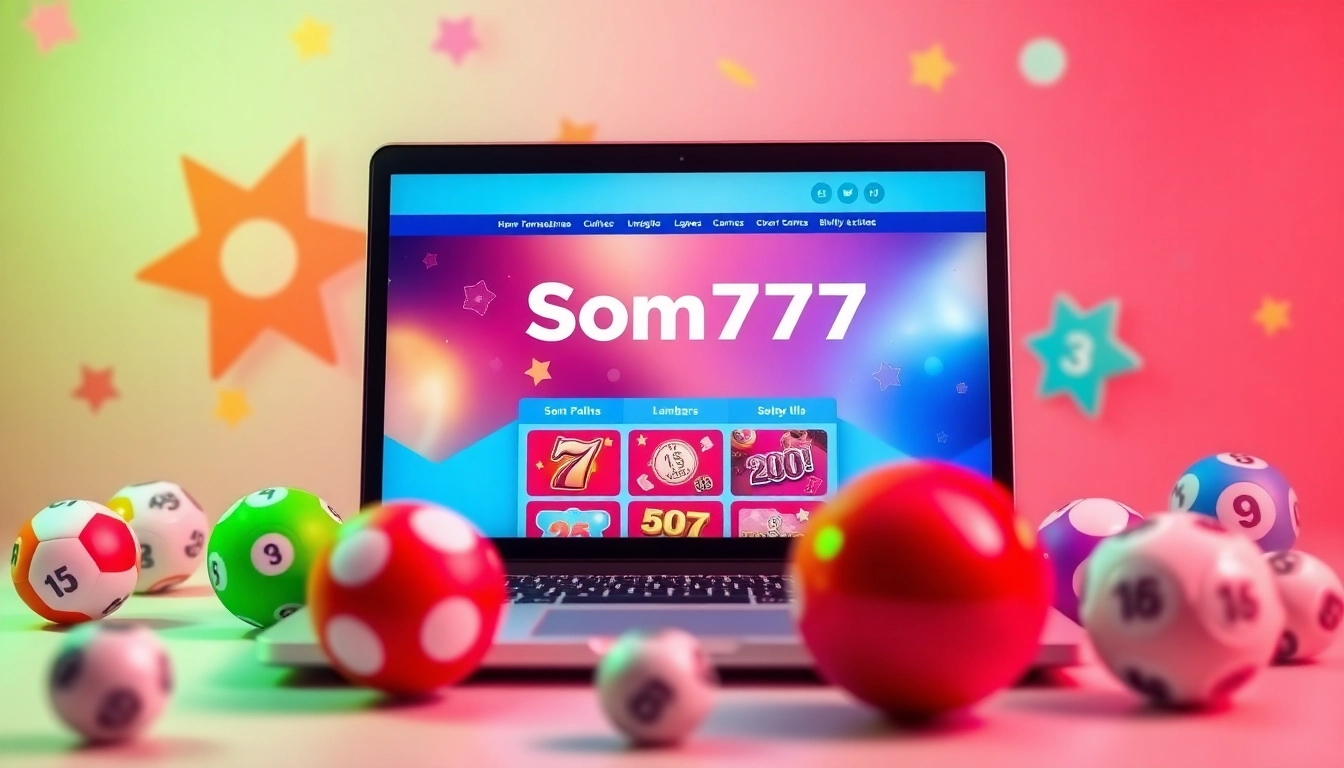Understanding the Lottery: Basics and Beyond
The lottery is a form of gambling that has fascinated individuals across cultures and generations. It offers a tantalizing opportunity for a life-changing windfall with the simple act of purchasing a ticket. As a player, it’s essential to grasp not just the thrill, but the fundamentals of how lotteries work. This guide will delve deep into everything from the basic definitions to more advanced strategies. For anyone interested in the lottery, this comprehensive resource aims to increase your understanding and enhance your playing experience.
What is a Lottery?
A lottery is a game of chance that involves drawing numbers at random for a prize. Often, it is organized by state or federal governments as a means to raise funds for various public initiatives, including education, infrastructure, and community projects. Players purchase tickets with the hope that their selected numbers will be drawn, leading to potential financial rewards.
Types of Lottery Games Available
Lottery games come in various formats, catering to diverse player preferences. Here are the main types:
- Draw Games: These include popular games like Powerball and Mega Millions, where players choose numbers and hope they match those drawn.
- Instant Win Games: Known as scratch-off tickets, these provide immediate results, offering the excitement of winning spontaneously.
- Daily Games: These games take place every day, allowing players to play and win more frequently.
- Raffle Games: Participants buy tickets to win specific prizes, which are often fixed amounts rather than jackpots.
The Odds of Winning: How to Calculate
Understanding the odds is crucial for any lottery player. The likelihood of winning varies significantly from game to game. Generally, the more players participating and the higher the jackpot, the lower the odds of winning. For instance, Powerball has odds of about 1 in 292 million for the jackpot, while scratch-offs may offer much better odds, depending on the game design.
How to Play the Lottery Effectively
Playing the lottery can be exciting, but to make the most of it, players should adopt a strategic approach. This encompasses everything from number selection to managing finances.
Choosing Your Numbers: Strategies That Work
Selecting numbers can often feel daunting. While lotteries are designed to be random, some players use strategies that they believe improve their chances:
- Hot and Cold Numbers: Some choose numbers based on frequency—either consistently winning ones (hot) or ones that haven’t appeared in a while (cold).
- Random Selection: Alternatively, many players opt for a completely random set of numbers, trusting luck over pattern.
- Numerical Significance: Some individuals choose dates or lucky numbers that hold personal significance, though this limits the range to numbers typically between 1 and 31.
Online vs. Offline: Where to Buy Your Tickets
With the rise of technology, players can purchase lottery tickets both online and in-person. Each option has its advantages:
- Online: Buying tickets online is convenient and allows for automatic notifications of winnings. It’s also accessible for players unable to travel.
- Offline: Traditional ticket purchases provide a tactile experience and allow players to engage with the community in stores, fostering a sense of excitement.
Setting a Budget: Responsible Gambling Practices
As thrilling as the lottery can be, it is essential to approach it responsibly. Setting a clear budget for lottery spending helps maintain control and prevents gambling addiction. Use these tips for better financial management:
- Decide beforehand how much money you can afford to spend on tickets each week.
- Avoid using funds allocated for essential expenses.
- Track your spending to adjust your budget accordingly.
Common Myths About the Lottery Debunked
Many myths and misconceptions surround lotteries, often leading to confusion and misguided strategies. Here are some common ones.
The Truth Behind Winning Strategies
Many believe that certain strategies will guarantee a win, such as playing every draw or picking specific numbers. In reality, every draw is independent, and past results do not influence future outcomes. Understanding this fact can relieve players of unnecessary stress and prevent reckless gambling habits.
Understanding Randomness and Outcomes
Many players assign significance to patterns that they detect over time when, in reality, lottery draws are random events. This randomness means that no number is inherently “due” to win, and each combination has an equal chance of being drawn.
Lucky Numbers: Are They Real?
Many swear by their lucky numbers, but statistically, there’s no proven advantage to this practice. While it’s fun to play sentimental numbers, players should remember that luck in lotteries is just that—luck.
Analyzing Lottery Statistics for Better Insights
For avid lottery players, leveraging statistics can provide deeper insights into gameplay and enhance decision-making.
Winning Numbers: Historical Trends and Patterns
Researching past winning numbers can sometimes yield interesting trends but remember that these should not be viewed as reliable predictions. Instead, understanding which numbers have historically appeared more frequently can inform choices while keeping in mind the inherent randomness of the lottery.
State-Specific Lotteries: What You Need to Know
Each state in the U.S. has its lottery rules and regulations, and understanding these specifics can help players navigate their options effectively. For example, some states have larger jackpots due to higher ticket sales or specific games that are exclusive to that area.
The Impact of Lottery Revenue on Communities
While playing the lottery is about chance, the revenue it generates significantly impacts local communities. Most lottery proceeds are allocated to public projects, including education, health, and infrastructure, which means buying tickets equates to contributing to your community.
Advanced Strategies for Lottery Enthusiasts
For those willing to delve deeper into lottery strategy, there are advanced techniques to consider, which can potentially improve one’s overall playing experience.
Pooling Resources: Lottery Syndicates Explained
Joining a lottery syndicate involves pooling money with a group of people to buy more tickets and share any winnings. This approach can significantly increase your chances of winning, as more combinations are played with the same investment.
Using Technology for Better Chances
There are numerous tools and software designed to analyze lottery results and aid players in choosing numbers. Some offer insights based on historical data, while others automatically generate random combinations. Regardless, it’s important to recognize that these tools enhance non-random chances but do not guarantee wins.
Legislation Changes and Their Effects on Lotteries
The lottery landscape is continually evolving, influenced by changes in legislation. New rules can alter payout structures, ticket prices, and drawing frequency. Staying informed about these changes can help players adapt their strategies accordingly.












Leave a Reply